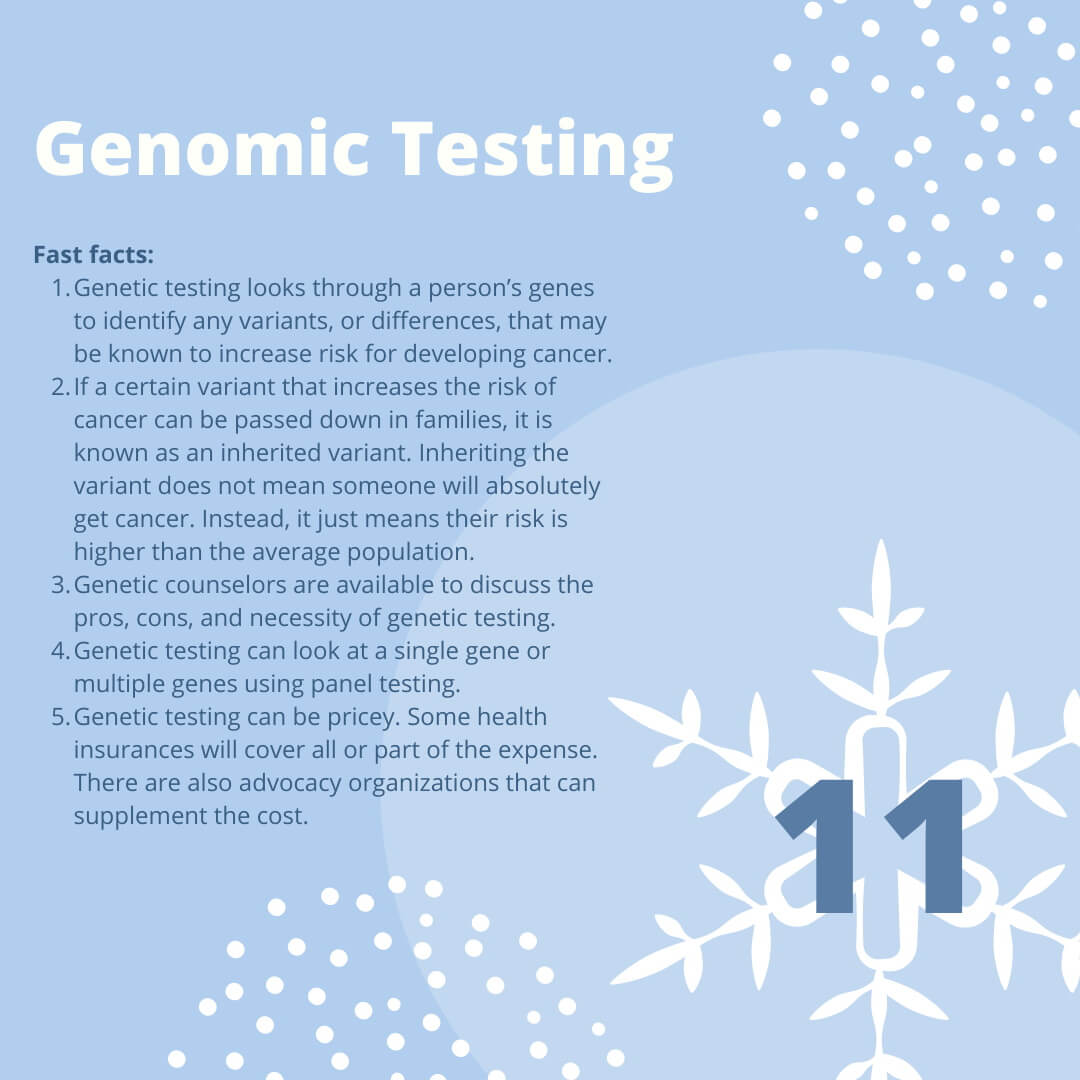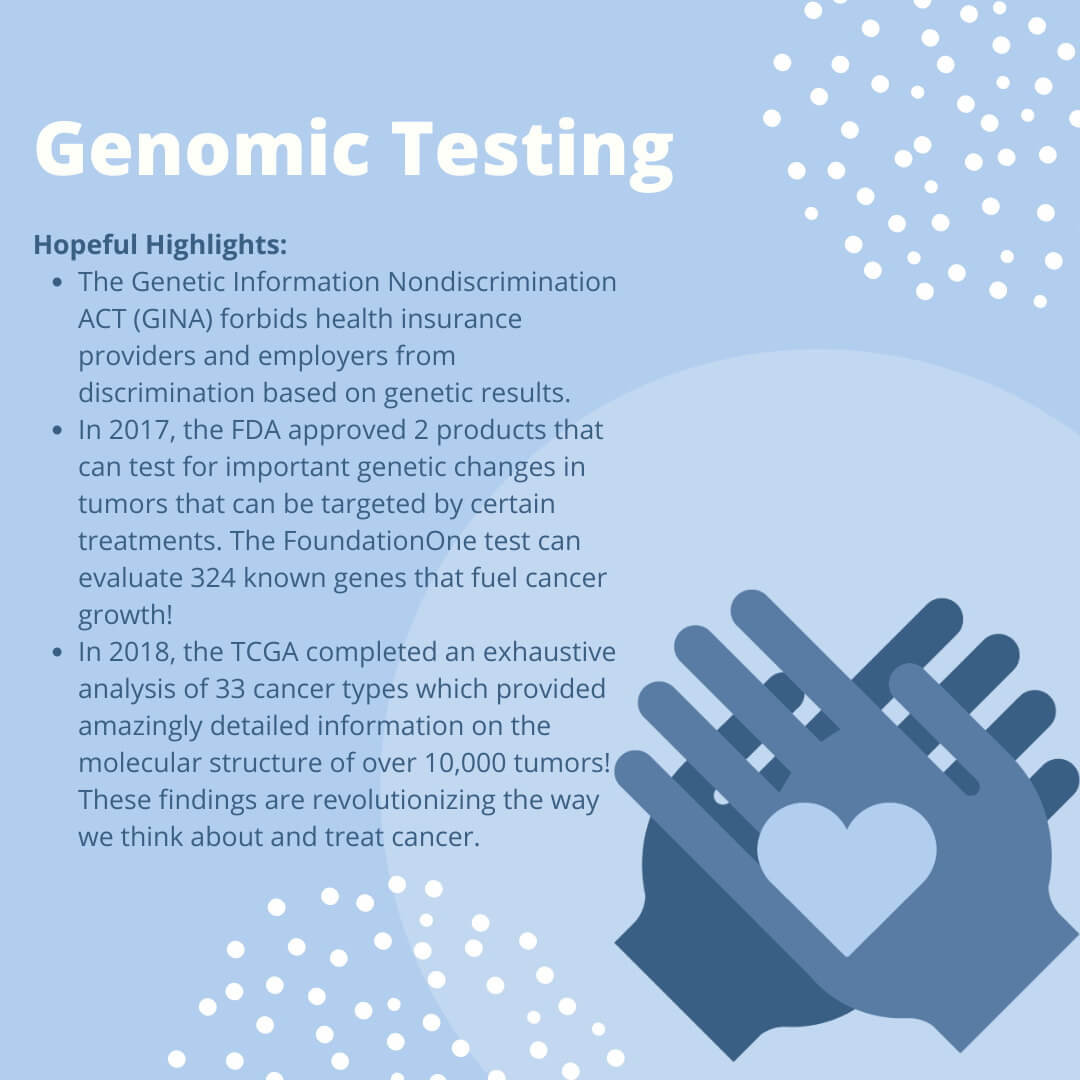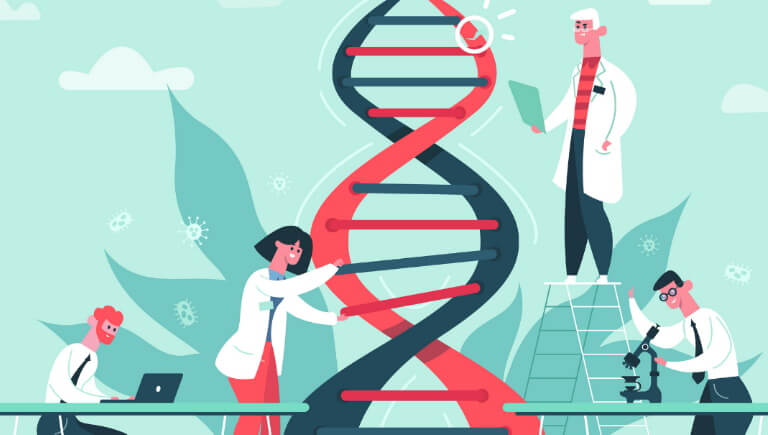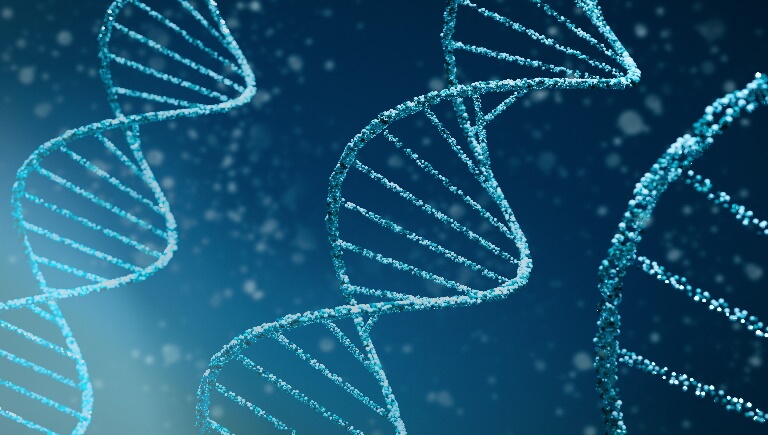
- Genetic testing looks through a person’s genes to identify any variants, or differences, that may be known to increase risk for developing cancer.
- If a certain variant that increases the risk of cancer can be passed down in families, it is known as an inherited variant. Inheriting the variant does not mean someone will absolutely get cancer. Instead, it just means their risk is higher than the average population.
- Genetic counselors are available to discuss the pros, cons, and necessity of genetic testing.
- Genetic testing can look at a single gene or multiple genes using panel testing.
- Genetic testing can be pricey. Some health insurances will cover all or part of the expense. There are also advocacy organizations that can supplement the cost.

- The Genetic Information Nondiscrimination ACT (GINA) forbids health insurance providers and employers from discrimination based on genetic results.
- In 2017, the FDA approved 2 products that can test for important genetic changes in tumors that can be targeted by certain treatments. The FoundationOne test can evaluate 324 known genes that fuel cancer growth!
- In 2018, the TCGA completed an exhaustive analysis of 33 cancer types which provided amazingly detailed information on the molecular structure of over 10,000 tumors! These findings are revolutionizing the way we think about and treat cancer.
More Details: What is Genomic Testing in Cancer Treatment?
Free Matching to Cancer Clinical Trials
- Your match report contains a detailed list of cervical cancer clinical trials that you may be eligible to enroll in to receive unique and nonconventional treatment. Standard treatment is not the only option.
- A patient advocate will review your report with you to answer any questions or concerns you may have and assist with enrollment if you decide to move forward with a trial.
- There’s no need to travel to a clinical trial site until the enrollment process is complete.
Our number one priority is creating positive outcomes for cancer patients. Let us help you today.



